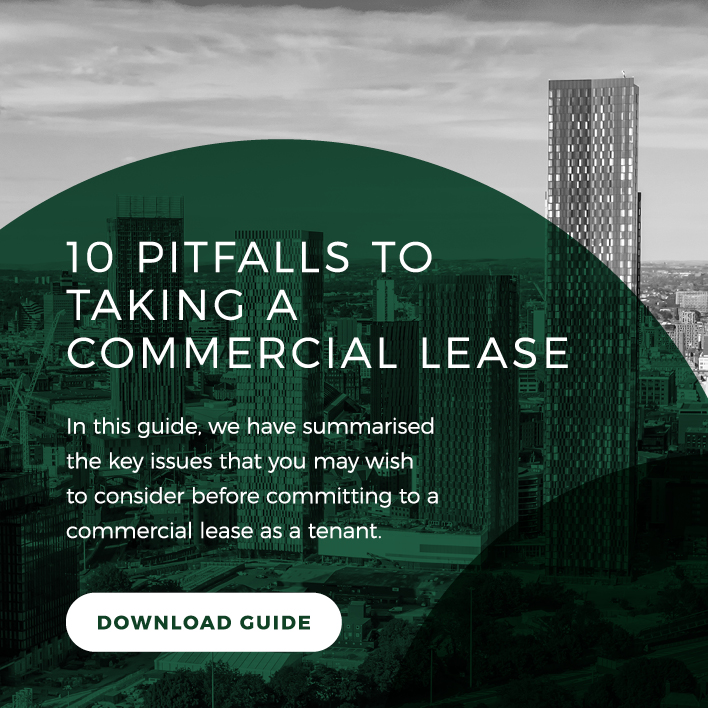Manchester 0161 832 2500 | London City 0204 505 8080 | London Finchley 020 8349 0321
Secure PaymentIf you have never taken a commercial lease before – and even if you have – you may find that the process is not as straightforward as you expected.
Whether you’re a startup business or an established enterprise signing a commercial lease is a significant commitment. It may come with its own risks such as unexpected costs to unforeseen complications. Here, we will look at ten pitfalls to watch out for when considering a commercial lease, with insights from experienced commercial lease solicitors at BBS Law.
#1 Underestimating the Time Required
Finding the right commercial space takes a lot of time and effort, you will start off searching for properties, identifying the right place and then further down the line negotiating terms. The process will be more time consuming than you first anticipate, as others may get the property before leaving you to find another.
Typically, finalising Heads of Terms is only the start of the negotiation process rather than the end. Even a relatively simple lease may typically take 3 to 4 weeks to finalise. With the guidance of solicitors for commercial leases you can streamline the process whilst being confident that all legal aspects are handled.
Our tip to help avoid timing constraints
A tip from BBS Law solicitor for commercial property lease is to factor in the time needed to prepare the property for trade and bear in mind any lead times required for orders.
#2 Taking the Wrong Property for You
It’s crucial that you choose a property that aligns with your business needs instead of rushing to get the first option that becomes available. You should take the following factors into consideration: location, size, footfall, layout and amenities. A solicitor for commercial lease can provide valuable insights into lease terms and conditions, helping you avoid pitfalls associated with mismatched properties.
Planning issues, you should check that the use as designated by the planning authority complies with your intended use. For instance, if you are taking over a property that was previously a private house with the intention of turning it into an office, you may need to apply for planning permission before you can use the property.
Our tip to help you choose the correct commercial space
Check with your local planning authority, or ask your solicitor to check if the property is (or forms part of) a listed building or lies within a conservation area.
#3 Misjudging the Length of the Lease
The lease term should be considered carefully. A long-term lease may offer stability but it can also lock you into a space that no longer suits your needs. On the other hand, a short-term lease may lead to uncertainty and potential moving out costs. A solicitor with experience in commercial property leases can assist in negotiating favourable lease terms that strike the right balance for your business.
A warning from the expert solicitors for commercial leases
The experts at BBS Law highlight the importance of watching out for anything in your lease which states that your rights under the Landlord and Tenant Act 1954 are excluded. An exclusion of these rights could prevent you from having a right to renew your lease or receive compensation when your current lease expires.
#4 Hidden Rent Traps
Be sure to pay close attention to the terms regarding rent escalation clauses and additional fees. It is very important that you understand the rent obligations which are contained within your lease.
If you pay your rent late you run the risk of being liable for interest as well as other costs. There is also the risk of ‘forfeiture’ meaning the landlord could end your lease early.
Some leases may include hidden charges or unexpected rent hikes so be sure to hire commercial lease solicitors to conduct thorough lease reviews. They will help to identify any hidden rent traps and ensure transparency in your lease agreement.
A tip for paying rent and avoiding the traps
Traditionally rent is payable 3 months in advance on the standard quarter days. However you should negotiate for rent to be paid monthly in advance, which tends to be better from a cash-flow point of view.
#5 Rent Changes
Understanding how rent adjustments are determined is important as fluctuations in market conditions or property assessments can lead to significant rent increases. With the help of solicitors for commercial leases you can get the best advice on what to do with your rent review clauses and gain valuable help negotiating terms that mitigate the risk of unexpected rent changes.
Our expert tip to keep you right
If your lease contains an open market rent review, you should ensure that the landlord cannot value improvements which have been paid for when determining the rent at the review. Check the wording in the lease carefully.
#6 Transferring Your Lease
If you plan to transfer or assign your lease to another party, be aware of the landlord’s requirements and any associated costs. Failure to comply with transfer provisions could result in legal issues or financial penalties. With guidance from solicitors for commercial lease transfers, you can navigate the process smoothly and avoid potential pitfalls.
An Expert Warning from BBS Law
Whether you assign or underlet you are unlikely to be released completely of your responsibilities as the tenant. The landlord on any assignment is likely to be able to request that you remain as a guarantor for the remainder of the contract.
#7 Repair Obligations
Standard commercial leases usually require the tenant to keep the property fully repaired and in a suitable state of decoration. The obligation still applies even if the tenant did not receive the property that way, meaning they could be required to repair the property to a better state than they received it.
When taking up a commercial lease you should have commercial lease solicitors take a look over the terms to clarify who is responsible for maintenance and repairs within the property. Ambiguous or unfair repair obligations could result in disputes and financial burdens down the line.
Commercial lease solicitors can review repair provisions and ensure they are fair and equitable for all parties involved.
A Tip from the expert Commercial Lease Solicitors at BBS Law
The commercial lease solicitors at BBS Law tell you to ask the landlord to limit your repairing obligations through a schedule of conditions. The schedule of condition should be attached to the lease so that you are not liable to put the property into a better state than that in which you received it.
#8 Unexpected Costs
Beyond the rent aspect you have to consider other expenses such as insurance, utilities, taxes and maintenance fees. These additional costs can add up quickly and impact your budget if not accounted for upfront. Solicitors for commercial leases can help you assess the full cost of leasing a property and negotiate favourable terms that minimise unexpected expenses.
A Tip From the Experts at BBS Law
The experts at BBS Law state that a solicitor for commercial property lease can help you to negotiate a maximum figure (cap) on your annual service charge payments. This will help ensure that the service charge cannot exceed a certain sum, allowing you to budget better by knowing the maximum you will be required to pay.
#9 Difficulties with Ending Your Lease Early
Circumstances may arise where you need to terminate your lease before its expiration. However, doing so prematurely could incur hefty penalties or legal consequences. Solicitors for commercial leases can advise you on the terms and conditions for early termination and help negotiate flexibility where possible.
A break clause will allow tenants to bring their leases to an end early. Landlords often stipulate conditions which need to be fulfilled before the tenant can operate (known as exercising) the break clause.
An Expert Tip from BBS Law
The experts of commercial leases at BBS law state that tenants should avoid mutual break clauses. This is where either the landlord or the tenant can end the lease early. This can create a real problem as the tenant can never be certain as to how long they will be able to occupy the property.
#10 An Unhappy Ending
Not all commercial leases end on positive terms no matter how hard you try, financial setbacks, disputes with landlords or changes in business circumstances can lead to less ideal circumstances. It is best to have commercial lease solicitors who can help you avoid the legal issues by providing guidance and negotiating in your favour where possible. Maintaining an open relationship with your landlord will help to keep you on good terms and potentially avoid an unhappy ending at that premise.
A Final Tip from the Experts at BBS Law
To avoid an unhappy ending when renting a commercial space be sure to seek assistance from experienced commercial lease solicitors, with their expertise they can help you navigate legal complexities and negotiate favourable terms that suit your needs.
Need A More Detailed Guide?
Check out BBS Law’s in depth guide on the 10 pitfalls for more information and guidance. If you haven’t found what you require in this short blog or simply want to know more on each topic be sure to check it out.
Remember a commercial lease requires careful consideration and attention to detail. By avoiding the pitfalls above and seeking guidance from experienced commercial lease solicitors you can minimise risks and make informed decisions that benefit your business in the long run.
Frequently Asked Questions
What should I know about transferring my lease to another party?
You should understand the landlord’s associated costs and requirements for transferring the lease. Be sure to seek guidance from solicitors for commercial lease transfers to navigate the process smoothly and avoid potential legal issues.
How can I prevent being locked into a lease that doesn’t suit my needs?
You should carefully evaluate the lease term and seek assistance from solicitors experienced in commercial property leases as they can negotiate favourable terms that strike the right balance for your business.
What steps should I take to negotiate favourable lease terms for my business?
You should start by thoroughly understanding your business needs and priorities, then leverage this information during negotiations to secure favourable terms. The terms should cover rent, lease duration, renewal options and leasehold improvements. Having a clear understanding of market conditions and comparable lease agreements can also strengthen your negotiating position.
How can I protect my interests in case of a dispute with the landlord during the lease term?
Be sure that the lease agreement includes dispute resolution mechanisms such as mediation or arbitration clauses. You should also consider adding provisions for legal expenses and indemnification in case of landlord breaches or disputes. It’s also advisable to maintain detailed records of all communication and transactions with the landlord to keep yourself right.
For further assistance with your lease requirements, or for any further information contact a member of our property team.
Download Guide



